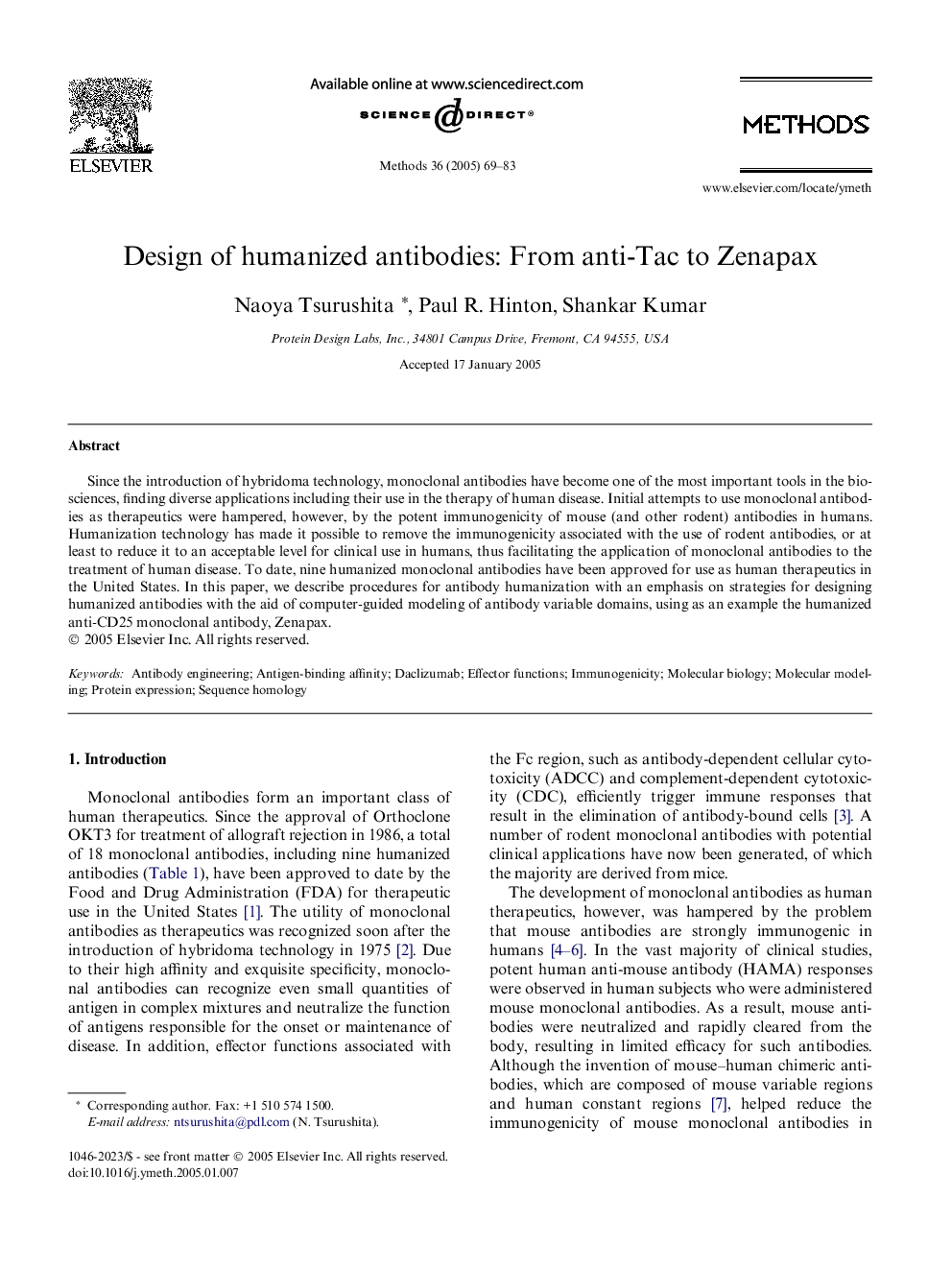| Article ID | Journal | Published Year | Pages | File Type |
|---|---|---|---|---|
| 10826689 | Methods | 2005 | 15 Pages |
Abstract
Since the introduction of hybridoma technology, monoclonal antibodies have become one of the most important tools in the biosciences, finding diverse applications including their use in the therapy of human disease. Initial attempts to use monoclonal antibodies as therapeutics were hampered, however, by the potent immunogenicity of mouse (and other rodent) antibodies in humans. Humanization technology has made it possible to remove the immunogenicity associated with the use of rodent antibodies, or at least to reduce it to an acceptable level for clinical use in humans, thus facilitating the application of monoclonal antibodies to the treatment of human disease. To date, nine humanized monoclonal antibodies have been approved for use as human therapeutics in the United States. In this paper, we describe procedures for antibody humanization with an emphasis on strategies for designing humanized antibodies with the aid of computer-guided modeling of antibody variable domains, using as an example the humanized anti-CD25 monoclonal antibody, Zenapax.
Keywords
Related Topics
Life Sciences
Biochemistry, Genetics and Molecular Biology
Biochemistry
Authors
Naoya Tsurushita, Paul R. Hinton, Shankar Kumar,
